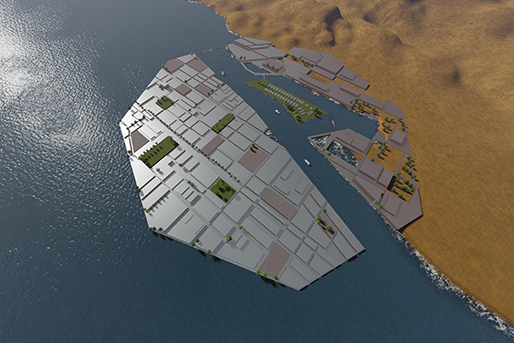
Real estate is the biggest asset class in the world by far, but the products available and services industry surrounding it are still in the early stages in the tech adoption life cycle. The sector has the largest investment holding in the world with investments reported reaching USD 9.6 trillion in 2019 worldwide. The industry severely suffers from the unutilized potential of various technologies that are available today. Stakeholders depend on traditional tools to manage their operations, and everything in between. It wasn’t until recently, when a new wave of innovators optimized some of the latest technologies to service the real estate market, that the term PropTech was coined.
PropTech is a newly devised term describing the digital transformation and innovation (Technology and Business models) in the Real Estate sector’s life cycle across all asset classes.
In the last few years, many investment firms have been heavily investing in PropTech companies that focus on integrating different technologies within real estate’s value chain including facility management, asset management, architecture design, construction, and many other verticals.
With the unceasing changes affecting the global market - such as climate change, the increase in population, and even COVID-19 - new technologies were rapidly adopted, which lead to PropTech becoming a global phenomena. With the pandemic reaching a peak in 2021 and the world reaching a veritable standstill, the resilience of PropTech was revealed in the $23.75 Bn invested across 425 PropTech companies globally. In comparison, the previous $24.3 Bn investments in 2019. Although, this resilience was after a jump compared between $11.2 Bn deal volume of 2018 (152.7% year-over-year increase), and $12.7 Bn in 2017.
In the MENA region, governments and organizations have been establishing smart cities and buildings that have contributed to accelerating the growth of PropTech companies. Leading cities, such as NEOM in Saudi Arabia, have begun introducing new technologies to advance construction operations. Other projects launched include new real estate marketplaces that connect property owners and managers to potential clients.

What would all the efforts, initiatives, and investments amount to if the real estate sector has not met its technology potential yet!
With this in mind, an essential question then arises: how will technology disrupt the real estate industry?
Bearing in mind, PropTech is considered to be in its early stages in the region, many opportunities will arise for companies to acquire and take advantage of in the next decade. Some such benefits real estate stakeholders can benefit from are:
Simply put, real estate marketplaces are online multi-sided platforms that enable property owners and management firms to sell or lease properties by connecting them with potential clients through seamless online experiences, either through web portals or mobile apps.
Many governments and real estate development firms are integrating Internet of Things (IoT) technologies to automate city and building operations by managing lighting, heating, and security activities from a single dashboard across different types of assets, including transportation and education institutes.
These governments are also harnessing new solutions to better manage energy and water resources while enforcing better laws to quicken technology adaptation.
Nowadays, development firms are merely relying on manual activities as they have managed to automate many of their operations by using modern ConTech (Construction Technology) solutions. Such as using drones to oversee entire activities by designing 3D maps of constructions sites.
Companies are also using 3D printing technologies to develop occupied buildings in a shorter timeframes while ensuring quality and safety for residences.
Crowdfunding is a financial solution utilized by real estate investors to easily diversify their investment portfolios as it allows a vast number of people to safely invest in single property or multi-unit real estate projects. Crowdfunding has enabled investors to raise capital for exciting and successful projects in the real estate market.
The use of blockchain technologies has contributed to making real estate investment more affordable by eliminating the cost of intermediaries. By introducing Initial Currency Offering (ICO) as a regulated practice in the real estate market, more investors are now able to invest capital.
The UAE has contributed to better adopting this technology in their global REIT market by enabling real estate investors to invest through crypto while gaining better retains.
Finally, modern development companies are utilizing AR/VR technologies to enable potential clients to experience their projects virtually regardless of their geographical distance.
As we can see above, there are different verticals and views where technology can disrupt the real estate sector. What most stakeholders are afraid of is that with this technology, they might lose their professions. But this is not the case as the technology being developed is meant as an aid to facilitate the work process rather than as a means of replacing human capital. The final aim of integrating such technologies is a better-positioned final product.